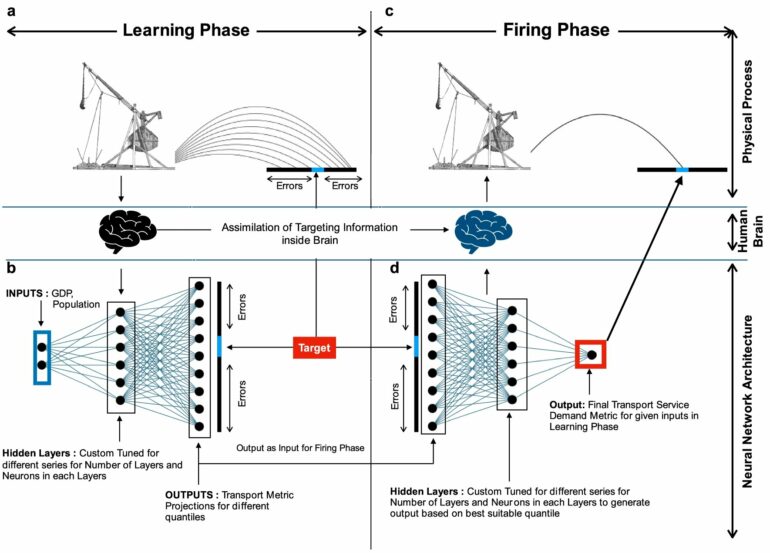Researchers at University College Cork (UCC) and Columbia University have developed new research that will improve the accuracy of estimating future demands for passenger and freight transport, that collectively account for 20% of global greenhouse gas emissions.
The United Nations estimates that the global population could grow from 7.7 billion people worldwide in 2019 to around 9.7 billion in 2050. The additional population and economic growth will likely lead to increased demand for transport services.
Reducing transport related emissions remains a considerable challenge for climate policy. Until now, transport demand projection tasks were handled by simulating demands or by using regression-based analysis. Now through this UCC and Columbia research, countries across the world will be more accurately be able to estimate future transport demands.
This research, published in Scientific Reports, introduces a new innovative machine learning approach called TrebuNet. The results demonstrate that this new TrebuNet architecture achieves superior performance compared with both traditional regression methods and more recent state of the art neural network and machine learning methods. The improvements extend to regional demand projection for all modes of transport demands at short, decadal, and medium-term time horizons.
Siddarth Joshi, who led this research as part of his Ph.D. in Energy Engineering at UCC commented, “This study provides insights into development of a novel machine learning architecture that increases the accuracy in the estimation of transport energy service demands. The innovative machine learning architecture and its benefits are measurable for the energy modeling community and is transferable to different disciplines.”
“Not only are the accurate transport demand projections important for energy system models and climate policy, but they also act as backbone for understanding the future direction of global energy markets,” stated Brian Ó Gallachóir, UCC Professor of Energy Engineering.
Dr. James Glynn, Senior Research Fellow with Columbia University added, “This new method demonstrates innovation in energy systems modeling and data analytics to solve weakness in understanding the outlook within energy system models for new applications of deep learning. This helps us remove uncertainty in decarbonization pathways.”
“Decarbonizing transport in line with global net-zero 2050 targets requires urgent climate action. Collaboration between Columbia SIPA and UCC is leading to new approaches in energy systems modeling and data science to provide the tools and evidence-based research for decision-makers designing climate policy.”
More information:
Siddharth Joshi et al, A deep learning architecture for energy service demand estimation in transport sector for Shared Socioeconomic Pathways, Scientific Reports (2023). DOI: 10.1038/s41598-023-30555-6
Provided by
University College Cork
Citation:
A new machine learning approach to estimate future demand in the transport sector (2023, April 3)



